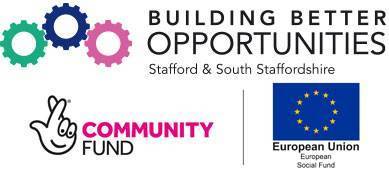How to List References On Your CV? CV Writing
If you’re writing your CV, it’s likely that you have been advised to include some references. However, you may be stuck as to what they are and where they should go. In order to help you with this and understand the importance of what you’re doing, we’ve put together the following guide.
What are References?
Often, employers will state that your application must include references. This can either be asked for on an electronic application form or they could be requested on your CV. However, you may be wondering what they are. References are used by organisations to provide guarantees that you are able to do what you have stated in your application.
This is important as hiring a new candidate is a big deal to a company and they need to be sure that you’re capable of providing what they have asked for. Companies will use references to contact people that you have worked with or that you’re close to. This is so that they can ask them anything from your proficiency with certain skills to how you deal with certain situations. They could also be used to validate anything that you’ve stated in your CV, so do not lie.
Who Should I Ask to be a Reference?
This very much depends on your level of experience and education. You should first consider people that you can rely on for positive references. This should also be someone that has worked closely enough with you to give an insightful response. When considering the types of references that you could use, there are three main avenues that you can go down. These are based on people that you have met in your work experience, education or personal life.
Which you choose should often be based on their relevance to the job that you’re applying for. It’s fair to say that often the most valued references come from those that you have worked alongside or for in the past. Having worked with you closely, you can rely on them for an accurate account of your skills and personality. Alternatively, if you don’t have much experience or you believe that your past teachers could give a glowing reference, call upon your educational network for a reference. If it is that you don’t have either of these types of contacts, fear not. You can still rely on those close to you in your personal life for what’s called a character reference. However, you should prioritise those that have a good understanding of your skills and work experience. Friends are often a great source of these references, with obvious relatives often being frowned upon.
How Should I Ask Someone to be a Reference?
Before you decide to include someone as a reference in any future applications, it’s often courteous to ask for their permission. This way, they will be prepared for any future reference requests and may have even already planned what they are willing to say. You can ask them this in a multitude of ways, depending on your relationship. If it feels appropriate to how you would usually communicate, you can email or text them. Alternatively, if you’re much closer, you could call them to ask their permission.
Where Should I List References on My CV?
In order to break this down, we’ve included a checklist for you to follow:
- Start a new page titled ‘Reference List’
- Write your 1st Referee’s name
- Write your 1st Referee’s job title (or relationship to you)
- Write your 1st Referee’s Company or Educational Establishment
- Write your 1st Referee’s contact information (either phone number or email address)
- Repeat this for each Referee in a consistent, user friendly format
Ensure that you break up each referee’s details to ensure that your document is user friendly and doesn’t get confused. Particularly with online applications, you will be asked for a certain amount of referees. However, if this isn’t the case, Indeed recommends that you base this decision on the seniority of the role. For example, if the role is one of your first jobs, you should be listing a minimum of three referees. However, if you have vast amounts of experience and you’re applying for a senior position, you may want to include many more.
Why are References Important?
References are important as they validate what you are telling your potential future employer. For example, if you have listed a skill that your future employer sees as being key to the role, they will feel confident employing you after your previous boss has confirmed it. Without references, employers wouldn’t have the ability to tell a false CV from one filled with truth. By including references in your CV, you are often just removing any uncertainty surrounding your application, which in truth can’t be a bad thing.
Employment Support in Stafford From Building Better Opportunities
If you feel as though you could benefit from any support, Building Better Opportunities can help. As a lottery funded organisation, we provide employment support and welfare advice in Stafford and South Staffordshire. To make the most of this, you can attend our drop in sessions or job clubs to discuss your situation with our experienced and friendly advocates. If you have any questions, please contact us and our team will be happy to help.
